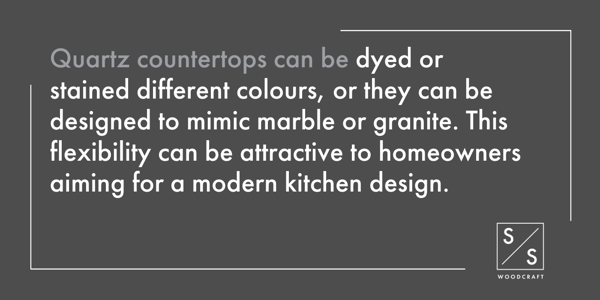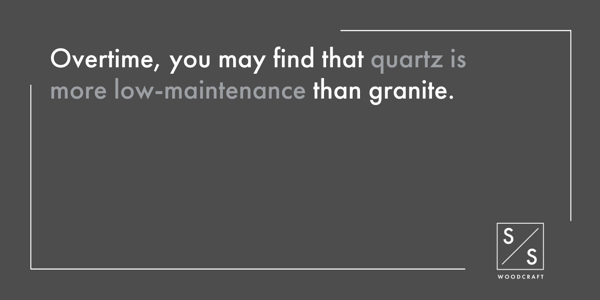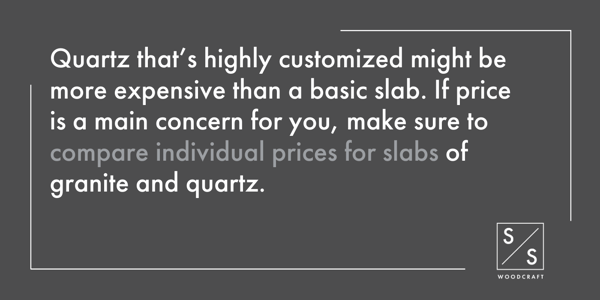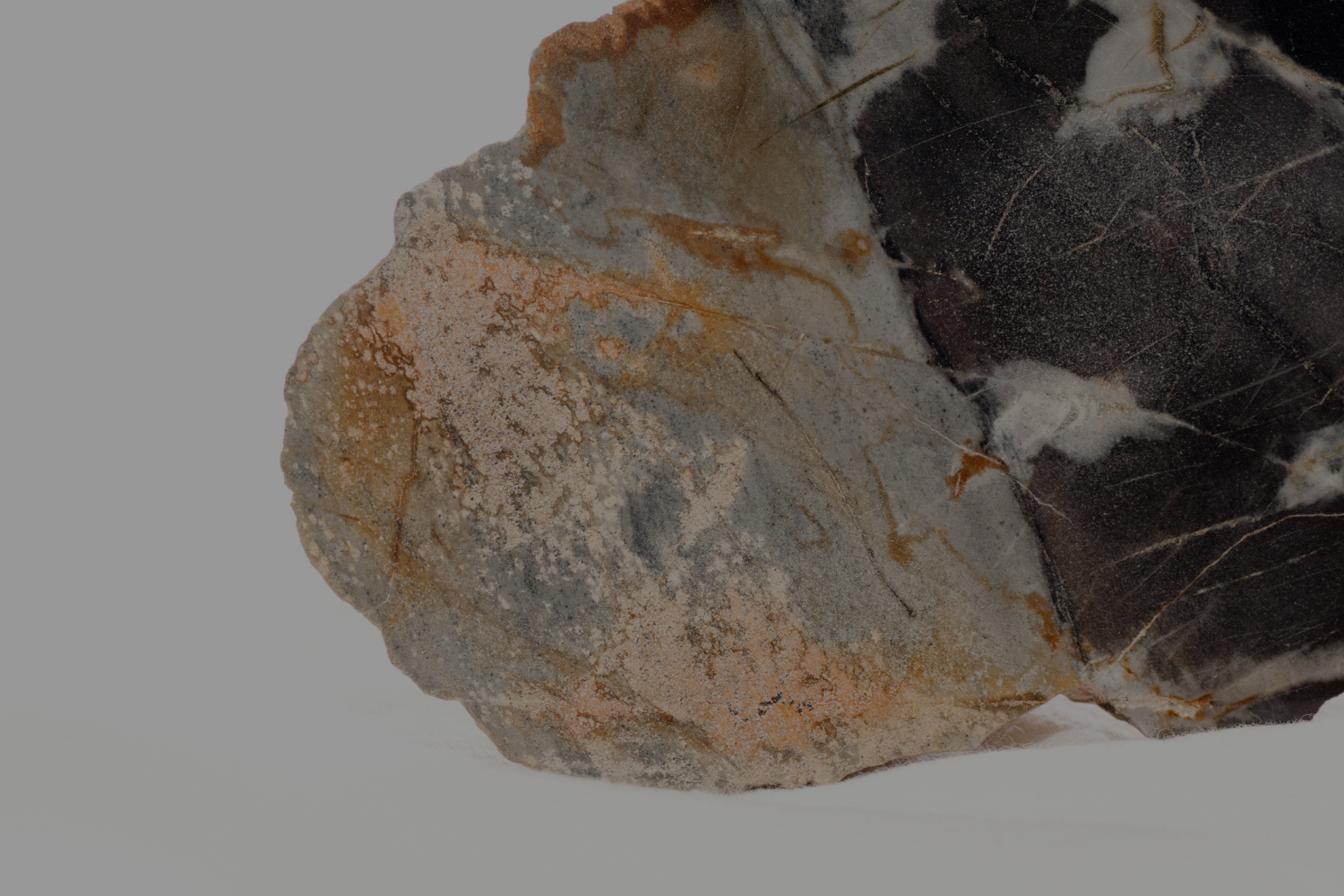Granite vs. Quartz: Which Material Should I Choose?
November 9, 2020Granite and quartz are both popular countertop materials, but each has certain advantages and drawbacks. Deciding between the two can be difficult.
Before a kitchen renovation, homeowners often wonder whether one is better than the other. We’ve put together this guide to answer some common questions about quartz and granite. Thinking about your budget, design preferences, and environmental concerns will help you select the material that’s right for you.
The Look
Before you decide between quartz and granite, you’ll have to think about the look you’re going for in your kitchen. Quartz and granite have different appearances, and one might work better with your design scheme.
Granite is a 100% natural material that’s mined and shaped into slabs. This means that no two slabs of granite will look exactly alike. Some homeowners may prefer the natural textures and colours that are unique to granite. The varied look adds dimension to the kitchen.
Quartz is also a natural material — for the most part. It’s made of 95% ground quartz and 5% resin. Manufacturers can manipulate quartz so that it takes on a variety of appearances. Quartz countertops can be dyed or stained different colours, or they can be designed to mimic marble or granite. This flexibility can be attractive to homeowners aiming for a modern kitchen design.

The Make
Unlike granite, quartz isn’t mined to make countertops. Instead, it’s gathered from other industrial manufacturing projects. Because of this, the components of quartz and granite are a bit different.
Granite is naturally porous, whereas quartz is not. This means that granite is at risk of soaking up stains and spills. Quartz is more stain-resistant, especially with the right sealant.
Though granite is a naturally hard stone, the resin in quartz makes it a bit stronger than granite. Over time, you may find that quartz is more low-maintenance than granite. It requires less care, and it withstands stains, bumps, and bruises a bit better over the years.

That said, granite is still a great choice for countertops. It’s not as delicate as some other popular choices, including marble and butcher block. As long as it’s properly sealed, it can stay in shape for the duration of your stay in your house.
The Care
Quartz and granite countertops require different types of care. We recommend that you wipe down granite with warm water and a gentle soap — like dish soap — each day to clean it. Some types of bleach or chemical cleaners can harm the granite or the sealant.
Generally speaking, quartz is a bit tougher than granite. It can handle most types of cleaning agents. Also, most quartz countertops come sealed and never need to be resealed. However, granite needs a fresh coat of sealant every 6 - 12 months, depending on how heavily you use your kitchen.
If you’re not sure whether you need new sealant, try the water droplet test. Place a droplet of water on top of your counter and leave it for a few minutes — does it sink into the material, or does it bead up? If it beads up, your sealant is fine. If the water soaks into the countertop, you’ll need to reseal it.
The Environment
Mining granite consumes lots of resources and energy. Quartz isn’t mined to make countertops — instead, ground quartz comes from other manufacturing efforts. Essentially, it’s recycled! Because of this, environmentally-conscious homeowners may want to opt for quartz over granite.
The Budget
Quartz countertops are generally less expensive than granite countertops for many of the reasons mentioned above. Manufacturing them takes fewer resources, and they’re not made from naturally-mined materials. Quartz makes for one of the best budget countertop options because it mimics natural stones, but it doesn’t run up as big of a price tag.
That said, quartz has a much more varied price range than other materials. Quartz that’s highly customized might be more expensive than a basic slab. If price is a main concern for you, make sure to compare individual prices for slabs of granite and quartz.

The Bottom Line
Quartz has a few advantages over granite for some homeowners. Busy families looking for a low-maintenance, high-quality countertop might turn to quartz for its hardiness and variety. However, quartz can’t replace the natural texture and consistency of granite. If this is an important part of your kitchen design and it fits in your budget, go for granite. Ultimately, you should focus on choosing the material that checks all the boxes for your specific kitchen.
If you need further guidance on countertop materials or other aspects of kitchen renovation, schedule a free design appointment at our Cold Lake showroom. We have materials on-site to help you make your final decision.
.png)


